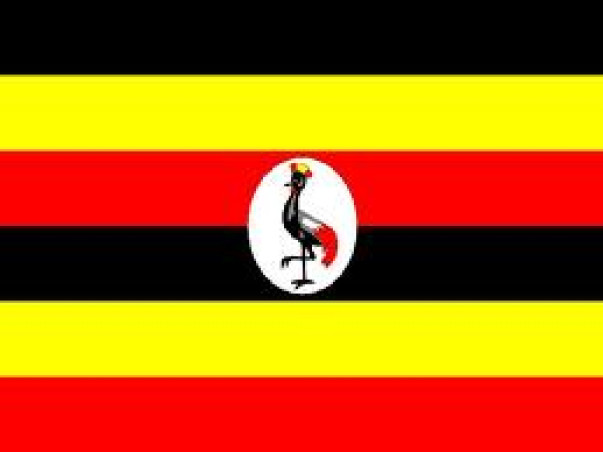East Africa
With cheques, time is not money

BY PATRICK KAGENDA
New laws required if modern electronic payment systems are to replace the old-fashioned cheque system.
Should we pay by cheque?’ The majority of payees would respond in the negative; it’s simply too inconvenient. Unfortunately, many entities are still legally required to pay by cheque, a system that first came into use in Europe in the 17th Century for the function of holding merchants’ funds on safe deposit and enabling financial transactions to be made without the physical transfer of coins.
The process is simple. A person writing the cheque (the drawer) holds a current account at a bank, which earlier issued him with a cheque book. The drawer writes out a cheque indicating the identity of the payee and the amount to be paid and directs the bank (the drawee) to pay. Over the centuries, the cheque became a highly popular non-cash method for making payments including inter-bank payments. But with the rise of technology in the information age, cheque usage has drastically declined as electronic payment systems rose to the fore. Consequently, the use of cheques is becoming rather old-fashioned worldwide and is being completely phased out. However in developing countries like Uganda, the cheque is still holding on, its inconveniences – lost time and money, notwithstanding.
According to BoU, the average clearing cycle for a cheque – turning the paper into actual cash - lasts three full working days – quite a long time in this day and age when ‘time is money’ - literally. The availability of real time payment methods, especially credit/debit cards, online payment systems, mobile money, etc are now making cheque payments almost superfluous. In most of Europe for instance, cheques have almost completely vanished in favour of direct bank transfers and electronic payments. Unfortunately, some of Uganda’s accounting systems and financial controls mean that it will be quite a long while before cheques are complexly rendered redundant. Yet, the irritating inconvenience persists. Currently, it takes up to 3-4 days for a person paid by cheque to have his account credited. Comparatively, mobile money can transact up to Shs 5m in a twinkling of an eye.
Fred Muhumuza, a financial analyst at the Financial Sector Deepening Uganda, says some adjustments would have to be made in the laws if the cheque is to be phased out completely. “Mobile money is not yet recognized by law and is not yet legalized. The law needs to recognize mobile money first before people can take it on wholesale. However, we still have a weakness with the law and today the policy we have are ancient laws,” he says.
“The sea of transitioning mobile technology has overtaken the banking law and we are working with the Central bank on revising the payments system.”
Muhumuza says until the Central bank comes up with law recognizing mobile money as a payment system, the cheque payment system will remain in place especially to address issues related to bouncing cheques. “It is very easy to trace and audit a cheque, which is not possible for mobile money,” he says.
However, other experts say that while the cheque is still being used as the only method of making official payments, the winds of change are already blowing. Stephen Kaboyo, the managing partner at Alpha Capital Partners, says the cheque payment system is already taking a battering from the e-payment system. He says being the “traditional form” of payment, cheques continue to be used to pay for goods and services. However due to the development of online payment solutions such as credit cards, debit cards, e- cheques; mobile money etc, the use of cheques is seeing a considerable decrease.
He says the risks associated with cheques such as long time clearing times makes it difficult for the payee to plan cash-flow because the actual credit date is not foreseeable and the risk of non collection in case of insufficient funds – all of which make the use of cheques very inconvenient compared to instant cash. At the Private Sector Foundation Uganda, Gideon Badagawa, the executive director, sees the cheque being phased out with time with technological advancement and the strengthening of institutional capacities. He adds that the reason it takes three days is because the banks have to verify and double check so as to avoid fraud and mis-payments.
“Yes, e-payment is certainly better and faster that using a cheque. But in growing financial systems like ours the process can only be gradual and with lots of caution especially guarding against fraud and hacking into accounts,” he says.
Bank of Uganda says while there is a need to modernize the cheque system, the various payment systems would have to run side by side for a while. Christine Alupo, the director for communications, says one of the characteristics of a good national payment system is to have a range of options. The choice of mode of payment - either cheque or e-payment - is a matter of convenience and preference.
Cheque transactions amounts are capped at Shs 20m to minimize fraud. Any transactions exceeding this amount are initiated and settled electronically. Asked if the three-day clearing time frame for cheques can be reduced, Alupo said this can be made possible through an innovation called ‘cheque truncation’ – a process whereby the cheque is cleared based on its electronic image – thus eliminating the requirement for a physical cheque to be sent physically to the banking bank/branch as is the case now. However, cheque truncation is currently not possible in Uganda due to the absence of an enabling law.
SOURCE: THE INDEPENDENT
 Africas leading resource for digital financial services
Africas leading resource for digital financial services


comments